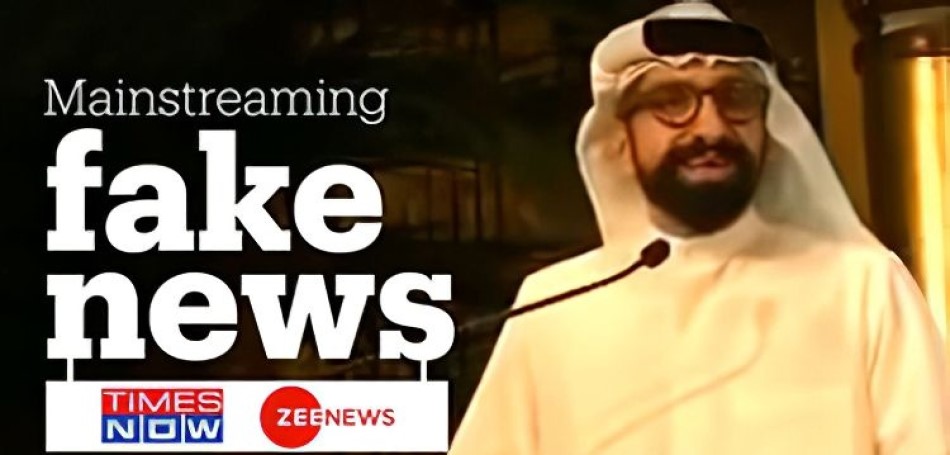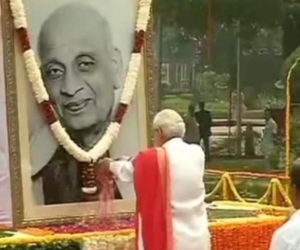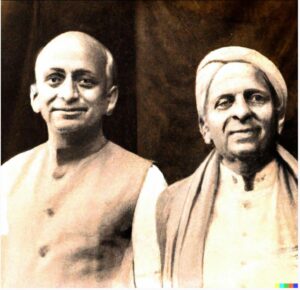
Over the last month, a video showing a man chanting ‘Jai Siya Ram’ before delivering a speech at a Ram Katha program in the United Arab Emirates (UAE) went viral on social media. The man in the video was initially identified as the Crown Prince of Abu Dhabi, Sheikh Mohammed bin Zayed Al Nahyan. However, further investigation revealed that the man in the video was actually Sultan Sooud Al-Qassemi, a UAE-based columnist.
The video was picked up by several news outlets, including Times Now and Zee News, which reported that the Crown Prince of Abu Dhabi had chanted a Hindu mantra during a public event. However, this news was false and misleading, and it’s essential to debunk this claim.
Firstly, the video does not show the Crown Prince of Abu Dhabi chanting ‘Jai Siya Ram,’ and it’s unclear where the video originated. The absence of any official statement from the UAE authorities or the Crown Prince’s office further confirms that this news is false.
Secondly, the UAE is a Muslim-majority country with a significant expatriate population. While the country respects and protects the rights of all religions and beliefs, it’s unlikely that the Crown Prince of Abu Dhabi would chant a Hindu mantra during a public event. The UAE is known for its religious tolerance and respect for diversity, but it’s essential to understand the cultural and religious context of the country.
Finally, the spread of false information or “fake news” can have severe consequences. It can create social unrest, damage reputations, and harm individuals and communities. It’s crucial to verify the source and authenticity of news before sharing it with others, especially on social media.
The incident highlights the importance of fact-checking news and information before reporting on it. In the era of social media and instant news, it’s crucial for journalists and news outlets to rely on credible sources and uphold the highest standards of journalism. False information or “fake news” can have severe consequences and cause harm to individuals and communities.
It’s essential to promote responsible journalism and media literacy by verifying the authenticity of news and information before reporting on it. In this case, the man in the video was not the Crown Prince of Abu Dhabi, but Sultan Sooud Al-Qassemi, a UAE-based columnist. It’s essential to correct the false news and ensure that accurate information is disseminated to the public.
Moreover, the incident underscores the need for greater media literacy and critical thinking among the public. With the rise of social media and the internet, it’s become easier to spread false information and propaganda. It’s crucial for individuals to question and verify the information they come across and not to believe everything they see or hear.
In conclusion, the news claiming that the Crown Prince of Abu Dhabi was seen chanting ‘Jai Siya Ram’ during a public event is false and misleading. It’s essential to promote responsible journalism and media literacy by verifying the authenticity of news and information before reporting on it. False information or “fake news” can have severe consequences and cause harm to individuals and communities. Let’s work together to promote truth, accuracy, and accountability in our society.




